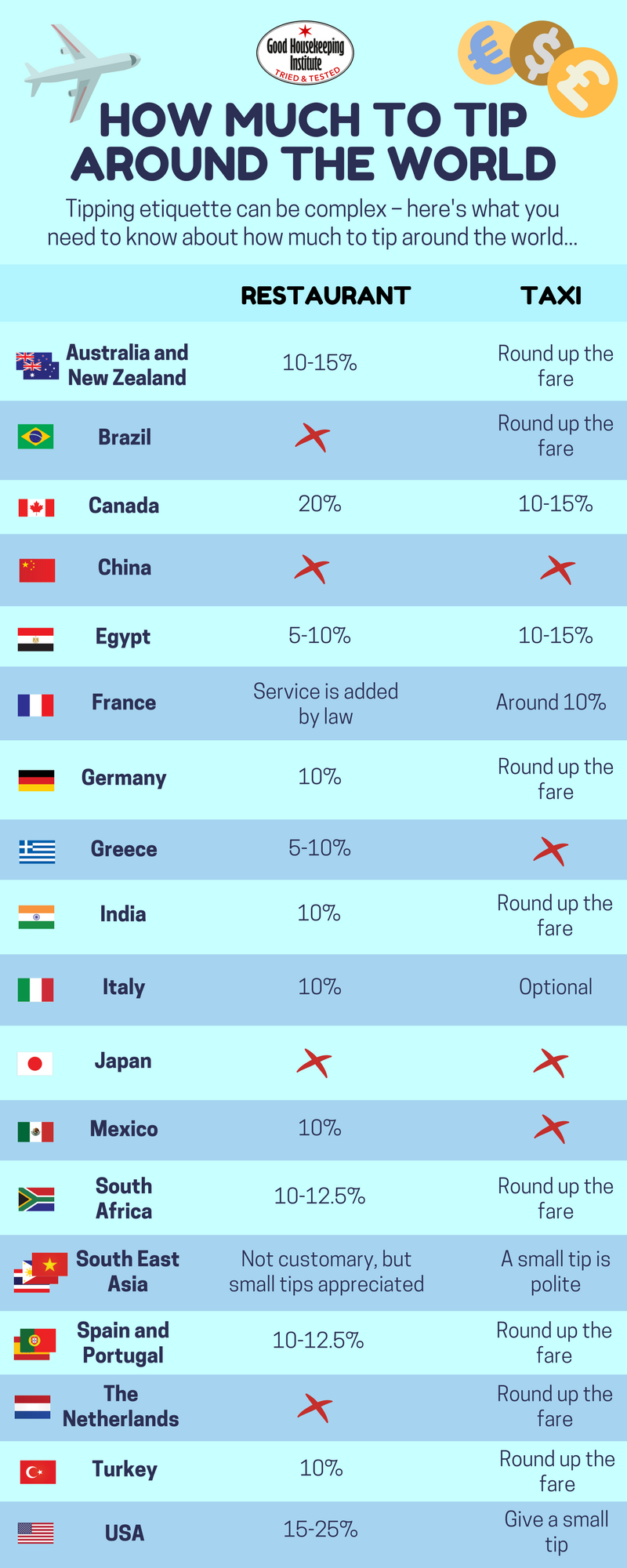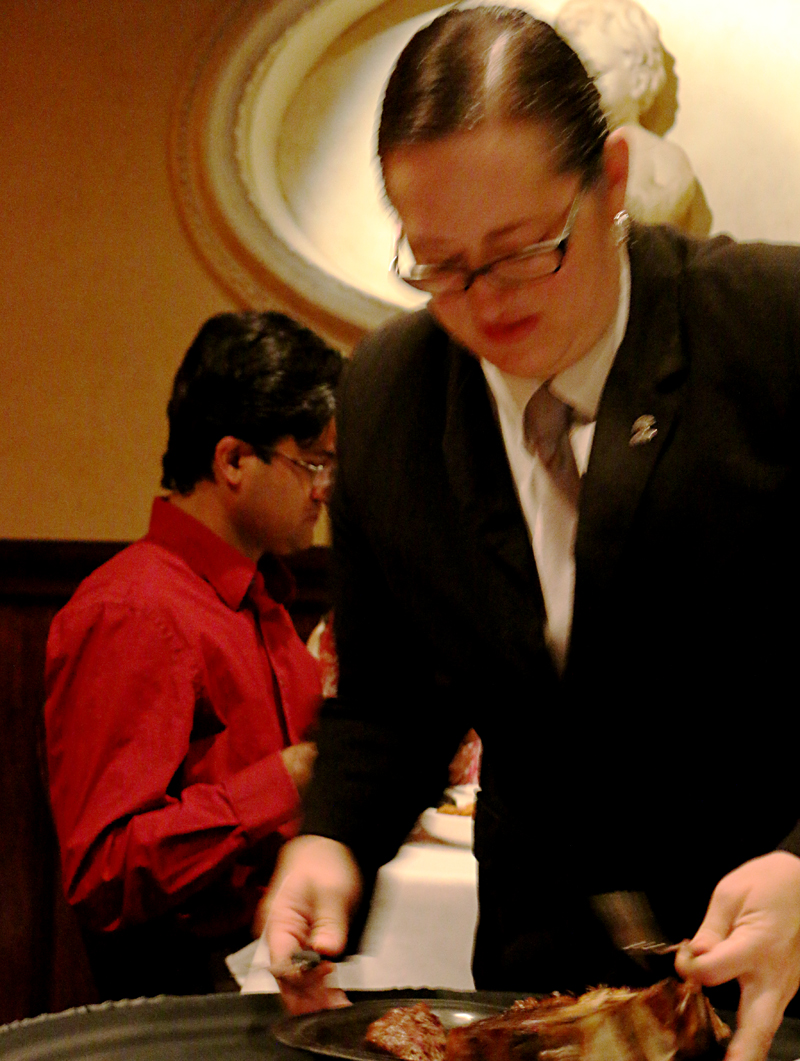Tipping has been a volatile topic in the world of frequent travelers since — well — arguably since when frequent travel first started: tip the housekeeping staff; tip the concierge in a hotel or resort property; tip the server in a restaurant; tip the driver of a taxi cab, airport shuttle service or ride-sharing service…
How Much Should You Tip Around The World?
…but how much should you tip around the world? An interesting infographic embedded in this article written by Simon Cocks for Good Housekeeping magazine in the United Kingdom offers some simple advice in the form of what is called the definitive guide:

Not all countries around the world are listed in the infographic; but the United States is arguably the worst of the list in terms of expected gratuities, with as much as 25 percent of the bill advised to leave to a server in a restaurant…
…but remember that in the United States, the gratuity should be a percentage of the bill before tax is added.
You should also not have to leave the person who delivers food to your room via room service in a hotel or resort property a gratuity in addition to the service charge — typically 18 percent of your bill — which had already been added to your bill.
More countries are represented in this discussion posted almost ten years ago on FlyerTalk, which offers a guide to tipping — but it is still relevant today, as it offers pertinent suggestions which have been updated over the years.
Other articles at The Gate which have over the years covered tipping and gratuities include:
- Should Customers Pay Servers By the Hour as a New Concept Pertaining to Tipping and Gratuities?
- No Tipping Policy Pared Down at One Restaurant Chain
- Should Gratuities and Tips in Restaurants Be Discontinued?
- Comparing Tipping to Paying Taxes? Get Real…
- Hey, Marriott: I Will Tip When I Darn Well Feel Like It
- Tips and Gratuities: Your Thoughts, Please
- “Get Back Here and Give Me My Gratuity!”
- Here is a Tip For You Regarding Room Service
Summary
When to leave a gratuity — as well as how much to leave and to whom it should be given — is too subjective to package into a neat guide, in my opinion.

In other words, I will tip when I darn well feel like it. There have been times where I have given generous tips to people who deserved it because of the quality of service which they offered; and there have been those rare times where I left nothing when even the mere thought of leaving a gratuity caused me to shudder.
“Having worked in many restaurants, I will say one thing”, Tom — who is a reader of The Gate — posted in the Comments section of this article pertaining to whether or not gratuities and tips in restaurants should be discontinued. “If you choose to not top at all or give a ‘good’ server a marginal tip in the US, do not ever return to that restaurant. I have watched servers and chefs spit in food, blow their nose in food, drop a raw steak on the floor prior to cooking it, serve regular coffee when promising to give decaf, etc. you might be principled if you don’t leave a tip but I promise you will be the one losing out. It simply isn’t worth it.”
If the service was so bad that I would consider not leaving a gratuity at all, I would not return as a customer anyway.
According to my own personal experience, I have consistently found that politeness and respect towards the service provider goes a long, long way towards ensuring proper service, and can be far more effective. Most people deserve to be treated with respect and addressed politely. Respect and politeness can be far more valuable than mere money, in my opinion. Throwing money at someone who does not earn or deserve your respect — let alone perform the service in question properly or at all — should be considered insulting to a person with moral character.
The argument that service personnel — mainly in the United States — depend on gratuities due to low and even sub-standard compensation paid to them by their employers is understandable. They do deserve to earn a living and be compensated for their work. If those service personnel choose a job or profession which is reliant upon gratuities, then they need to perform their role as best as they possibly can — and unfortunately expect the occasional deadbeat to not leave a well-deserved tip. Others may argue that service personnel earn more than people think as a result of gratuities — and that topic alone is worthy of its own article.
Repeating myself from past articles, I believe that a gratuity should be deserved, not expected; earned, not required. If you are a service provider, did you offer a service of value to your customer — and did you do it exceptionally well? If so, that is how you will get a tip out of me. If not — well — that is up to me to decide. Not you.
All photographs ©2015 and ©2016 by Brian Cohen.

